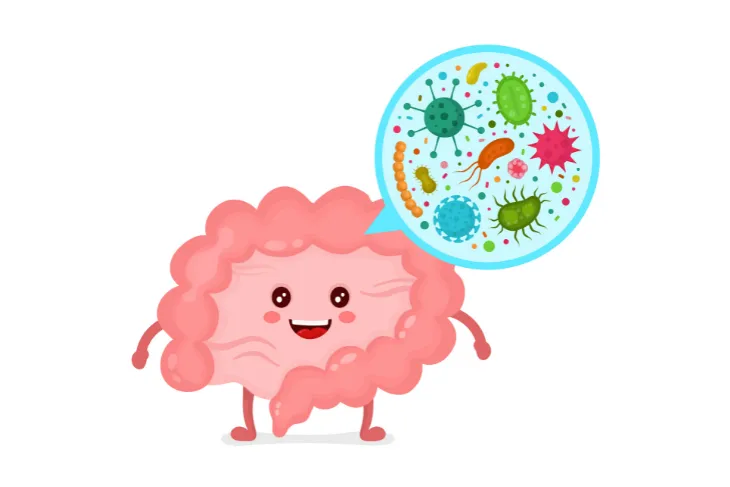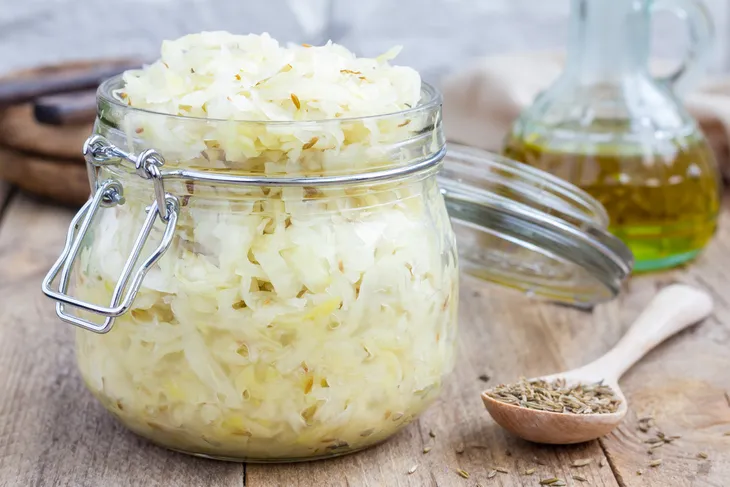The human body has trillions of bacteria, many of which are located in the gut. The bacteria, viruses, and fungi are collectively known as the microbiome. We know that an individual’s gut bacteria has a great influence on their overall health. But what researchers are trying to learn is whether or not our gut bacteria can influence the aging process.
Since not a lot is known about why we age the way we do, this type of study could provide us with helpful insight into anti-aging methods. Such as is there actually such a thing as an anti-aging microbiome? Here is what a group of clinical researchers know so far.
Why Gut Health Is Important
Our gut health influences just about everything as we grow older. In addition to controlling how we digest food, the gut microbiome also determines bodily processes such as our immune system and central nervous system.
The problem is that when there’s an imbalance of healthy and unhealthy microbes, it can lead to health disorders. According to Healthline, some of the issues you can experience with poor gut health are weight gain, high blood sugar, and high cholesterol.
Aging and Gut Microbiome
While we know gut bacteria is essential for our health, there are questions about how gut health can impact how we age. Can altering our gut bacteria help us live healthier, for longer?
Someone looking for answers is Marina Ezcurra, Ph.D., a lecturer in neuroscience at the School of Biological and Chemical Sciences at the Queen Mary University of London in the UK. She and a team of researchers decided to look into how the microbiome influences gastrointestinal aging.
Method of Research
Medical News Today explains how Ezcurra used something called Caenorhabditis elegans (C. elegans) to study aging, also known as a roundworm. These worms live for 2 to 3-weeks and develop several pathologies like humans do.
Experts are able to examine its resistance to growth, stress, fertility, and even lifespan. C. elegans have been involved with other studies as well. They are a model that’s been used to study human diseases, such as Alzheimer’s disease.
Why Do Scientists Use Worms?
According to an article from the genetics center at the University of Minnesota, these primitive organisms are about 1-millimeter in length and feed on bacteria.
The reason why scientists use worms to conduct research is that they share essential biological characteristics with human biology. They have a nervous system with a brain, can reproduce, and are determined by genetics.
The Findings
The C. elegans were fed with Escherichia coli. Then, the researchers created 4,000 mutant strains of E. coli that each had a specific gene deleted. The C. elegans were then fed these strains which led to some interesting findings.
Out of the 4,000 bacterial genes tested, 29 of them increased the worm’s lifespan. Also, 12 of them ended up protecting the worms from tumor growth and a thing called amyloid-beta which is linked to Alzheimer’s disease in humans.
A Diabetes Drug Could Prevent Aging
Another interesting find in Ezcurra’s research has to do with a diabetes drug called metformin. It’s an oral medication that reduces sugar levels and reduces the risk of cancer.
The scientists gave this drug to mice and C. elegans in an effort to target age-related chronic diseases. They found a delay in aging through bacteria but did not see these results with the absence of bacteria.
Therefore, Medical News Today says that metformin could trigger a reaction that ends up activating a molecular pathway known to regulate aging.
Certain Bacteria Could Have Anti-Aging Effects
In addition to metformin, researchers discovered another factor that can reduce aging. Specifically, colonizing the gut with specific strains of bacteria.
There are two strains of bacteria from the C. elegans microbiome that reduce intestinal aging. This means that it’s possible to achieve anti-aging effects without having to wipe out bacterial growth.
What This Could Mean Going Forward
The research conducted on C. elegans is just the beginning. Ezcurra says microbiome diversity is important for human health and by understanding how it’s linked to nutrition, will help maintain health and quality of life without invasive surgery or drugs.
Ezcurra shared her plans going forward in learning more about how microbiomes and anti-aging are connected. “The next step for my research is to use C. elegans to ask specific questions about the role of the microbiome in human health,” Ezcurra said to Medical News Today.
Positive Habits for Gut Health
A Diverse Diet
Taking care of your gut health is one of the many things you can do to live a healthy and long life. It has to do with what you put into your body, making your diet the most important factor in a healthy gut.
Your diet should consist of a diverse range of foods. Healthline explains how the more species of bacteria you have, the greater number of health benefits they may be able to contribute to. Western diets tend to lack diverse foods, so it might be time to make some changes.
Eat High-Fiber Foods
The first change you can make is to make sure you eat plenty of fruits, vegetables, legumes, and beans. Healthline explains, “fruits and vegetables are the best sources of nutrients for a healthy microbiota.” Fruits and veggies are great sources of fiber that are digested by certain bacteria in your gut and ultimately stimulate the bacteria’s growth.
Other excellent sources of fiber are legumes and beans. If you need help selecting high-fiber foods consider the following:
- Raspberries
- Artichokes
- Broccoli
- Green peas
- Lentils
- Beans
- Whole grains
Fermented Foods
Fermented foods are also great for your gut bacteria. Many fermented foods are rich in lactobacilli which is a type of bacteria you can benefit from.
Some great examples of healthy fermented foods include kimchi, sauerkraut, kefir, kombucha, and tempeh. Plain, natural yogurt can also benefit your gut health. Just be sure to stay away from the flavored yogurts that contain high amounts of sugar.
More Positive Food Habits
In addition to eating a diverse range of foods, there are other ways to improve gut health through your diet. Some of these include:
- Avoid eating too many artificial sweeteners
- Eat prebiotic food
- Eat whole grains
- Consume a plant-based diet
- Eat foods rich in polyphenols















